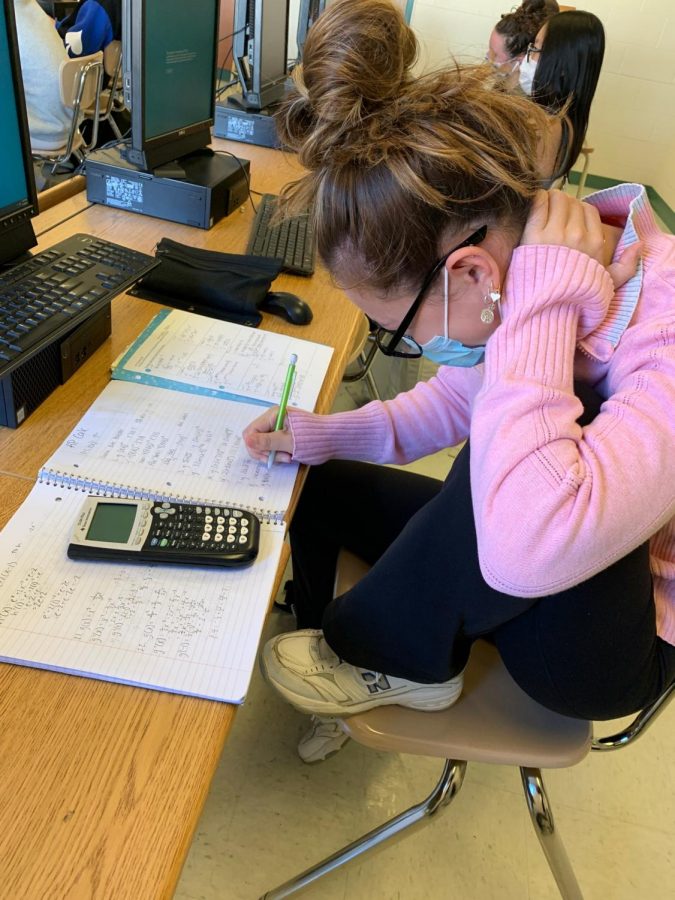As many students start this school year and the college process, they begin to reflect on their high school experiences and what they should or shouldn’t have done. Students look back on classes they took or didn’t take and observe how those classes affected them. Some only take hard AP classes because they will “look good” for college, but don’t take into account their educational interests or well-being.
It is common for students to sign up for classes that they only take for college purposes and not because they thoroughly enjoy the class. Although certain classes are mandatory to take, there is still room for students to choose some of their classes.
“I regret not taking classes that I wanted to take. Instead, I took classes I thought colleges would like and made my workload much heavier,” senior Hana Elster said.
Many chose to take classes they didn’t want to take which made it difficult for students to deeply explore their interests.
“I regret taking honors physics because it adds extra stress and work to my schedule. I like my classmates and teacher, but physics is not required to complete my science credits since I’m taking AP chemistry. Also, I’m not that interested in physics and really only took it to look good for college,” junior Wendy Liu said.
Students still continue to stay in a class although they find it strenuous. It takes a toll on their mental health because they feel overwhelmed and obligated to stick it out.
“I am currently taking a course that is difficult for me. However, I’m continuing with it because I know if I put in the effort and hard work I will succeed even if I am very stressed. Also, I stay in the class because I know I will be taking similar courses in college,” senior Ross Katcher said.
The accumulation of these difficult courses generates so much stress because of the pressure that is put on them by their peers. When students hear or see that so many other students or their friends are taking these kinds of classes, they feel pressured to do the same or better.
“So many of my friends take multiple AP classes that I feel obligated to also take those classes,” Katcher said.
Students feel academic pressure from their parents as well. Many parents want to see their kids taking these classes, but don’t take into account how much stress it puts on them.
“I also feel a lot of pressure from my parents when it comes to my courses. They both are doctors and want me to follow that sort of path, but I don’t really want to. I understand the importance of a challenge, but it’s a lot to handle sometimes,” Elster said.
Through taking these difficult courses, many students feel disappointed in themselves because they aren’t performing as well as they hoped.
“Honors precalculus and the accumulation of work from my other classes have negatively impacted my mental health. Precalculus was stressful in terms of grades because the first two tests dropped my grade. The class is fast-paced and relearning how to learn from the covid year was difficult. I would feel discouraged because I thought that I wasn’t working hard enough to get good grades in my classes,” Liu said.
When deciding which courses to take, it is important to find a balanced workload. Be realistic with yourself and take into account your interests and work ethic.
“I regret taking classes I’m not actually interested in and only for college purposes because it makes it harder to stay motivated,” Elster said.
Students shouldn’t make their course load extremely easy, but enough interesting and rigorous courses to keep them engaged and somewhat challenged.




































Hana Smellster • Nov 15, 2021 at 1:02 pm
Delicious